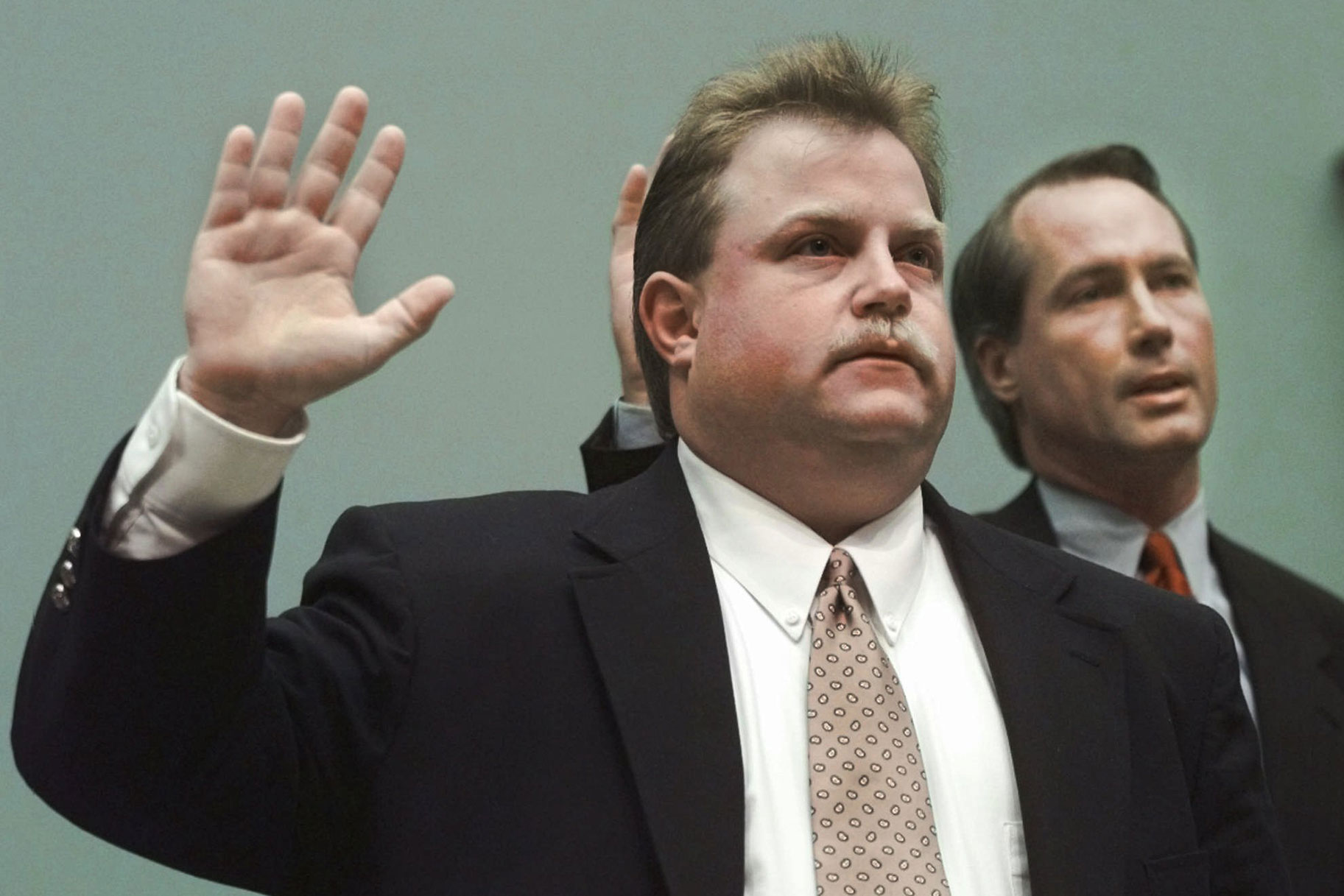Create a free profile to get unlimited access to exclusive videos, breaking news, sweepstakes, and more!
Did The FBI Really Try To Trick Richard Jewell By Asking Him To Take Part In A Training Video?
In Clint Eastwood's new movie "Richard Jewell," the FBI tries to trick Richard Jewell into signing over his rights by telling him they are merely making an FBI training film.

An actual hero turned person of interest in a bombing case was obsessed with law enforcement, so what better way to get him to confess than telling him that he was taking part in an FBI training video?
That’s just what the FBI did to Richard Jewell in Clint Eastwood’s new movie “Richard Jewell,” based on the true events surrounding the 1996 Olympics bombing in Atlanta. Soon after Jewell discovers a pipe bomb device at an Olympics event while working security, saving the lives of countless people, the FBI is tipped off by Jewell’s former employer that Jewell is police-obsessed.
This causes the FBI to theorize that police wannabe Jewell (played by Paul Walter Hauser) could be a lone bomber, who wants to be thought of as a hero through discovering his own bomb. The fact that Jewell mentions he wanted to get a job in law enforcement during one of his televised interviews following the bomb discovery further leads them to this theory.
So, when two FBI agents (played by Jon Hamm and Ian Gomez) show up at Jewell’s home and ask if he wants to come down to FBI headquarters to help them make a training video, he isn’t suspicious... in fact, he's ecstatic. It didn’t appear to faze Jewell that reporters are filling up his apartment complex’s parking lot and that some of them are asking him how he felt about being labeled a possible suspect. In fact, it isn’t until Jewell is asked to actually sign a waiver of rights on camera that he grows suspicious of this so-called training video, finally asking for lawyer.
So did this really happen or is this just the bombastic (pun intended) plot of a movie?
Fact is often stranger than fiction and this did indeed happen to the real Jewell.
In the 1997 Vanity Fair story that the movie was based upon, Jewell described how the FBI showed up at his door and told him, "We need your help making a training film.” He added, "I never questioned it.”
He said, “They told me they wanted me to come with them to headquarters to help them make a training film to be used at Quantico.”
Just like in the film, the reporters in Jewell’s parking lot didn’t lead him to suspect that the FBI was deceiving him. And just like in the movie, he didn’t get weirded out by a practical parade of FBI people trailing him from his home to the FBI headquarters in Atlanta, where he willingly went.
When he arrived, a cameraman recorded an interview between him and FBI agents for about an hour, according to the Vanity Fair story.
Then, one of the agents was abruptly called out of the room. He went back in and told Jewell, "Let's pretend that none of this happened. You are going to come in and start over, and by the way, we want you to fill out this waiver of rights,” according to the story.
(The film recreated this scene almost verbatim.)
That was the point at which Jewell grew suspicious.
"At that moment a million things were going through my head," Jewell told Vanity Fair. "You don't give anyone a waiver of rights unless they are being investigated. I said, 'I need to contact my attorney,' and then all of a sudden it was an instant change. 'What do you need to contact your attorney for? You didn't do anything. We thought you were a hero. Is there something you want to tell us about?'"
While never officially deemed a suspect, the FBI considered him a person of interest, which led to Jewell being ripped apart in the media.
He was cleared 88 days after the bombing after the U.S. Attorney's office delivered a letter to Jewell which lifted official suspicion from him, CNN reported.
Jewell was then fully exonerated following the real bomber Eric Rudolph's conviction in 2005.
He died two years later after suffering from health complications stemming from diabetes, the New York Times reported.

























